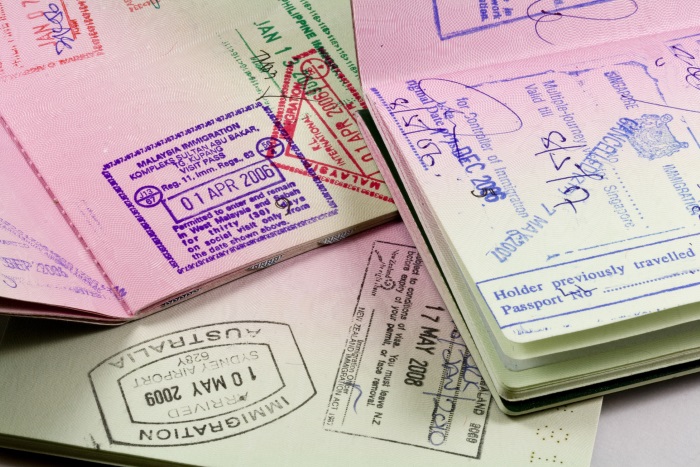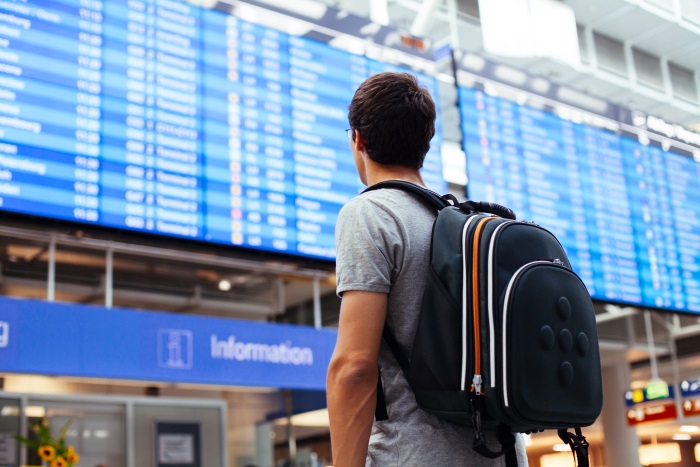
Moving to a new country and embracing all it has to offer can be a hugely rewarding experience.
But as exciting as emigrating can be, it does take a lot of planning to make it happen.
To help you on your way to a new life abroad we’ve compiled our emigration checklist of the top 10 things you should consider before making a move overseas.


Getting in – the visa
Taking a holiday in another nation is one thing, but actually putting down permanent (or semi-permanent) roots can be strictly controlled in some countries. In some cases, being eligible to live in a country long-term requires substantial funds or investment, while in others there are many legislative hoops to jump through. Make sure you know what requirements you’ll need to meet in order to be accepted in your country of choice, and if you need to apply for a visa spend time looking into the various options to ensure it’s the right visa for you.
In some countries securing a work visa can lead on to achieving full residency, and this can sometimes be an easier route than moving as a retiree – where you typically need significant savings to back up your application.


The language of the land
It might seem obvious, but deciding if you want to learn a new language or would rather move to a country with high numbers of English-speaking residents is a major point for consideration.
On one hand, avoiding language barriers can help you settle in quickly. On the other, taking the plunge and learning a new language can give you a huge sense of personal achievement, ingratiate you with locals and broaden employment opportunities.


Working your way in?
Getting a job in a new country can aid the emigration process as some allow the accumulation of working time, which eventually develops into permanent residence. If your talents like in a particular sector, look into the jobs market of your chosen nation to see if they have a particular skills shortage and to get an idea of what sort of salary you should be able to command.


Moving Your Belongings - By Land, Sea or Air?
How you chose to transport your belongings largely depends on where you’d like to move. Transport costs might be relatively small for a UK to France move, while UK to New Zealand prices will be significantly higher.
If you can’t get there by road, transporting possessions generally falls into two categories – air freight (which is quick but expensive) and shipping, which takes longer but is often much cheaper. Get quotes from several accredited international removals companies and check out online reviews to make sure you’re getting a deal which is both affordable and reliable.


Can you afford to emigrate?
Whether moving abroad to work or retire, calculating the costs of living is a key pre-decision point. Wages, expenses and working hours differ across the globe, so make sure you can afford to sustain yourself and enjoy a good quality of life in your new country.
You also need to factor in how you plan to move your money abroad as the exchange rate you secure for your currency transfers can make a massive difference to how much you receive.


How are the hospitals?
It’s not particularly pleasant to think about, but ensuring your new country has a good healthcare system is always prudent.
Medical costs for both basic and more intensive treatments should also be factored in – some countries provide low cost or free healthcare to taxpayers, while others charge for ambulances and other essential services.


A learning process – growing up abroad
If you plan to emigrate with a growing family, it’s worth looking at the new country’s education system.
Options for teaching expat children include homeschooling or public, private or international schools.
Children are generally better at learning languages than adults, so a local public school won’t be inaccessible. Costlier international schools, however, can teach in English while also helping your child get to grips with the country’s native language.


Will you need to transfer funds?
When planning a move, it’s well worth considering your international currency transfer options as the type of provider you use can leave you thousands better or worse off. Banks, for example, tend to offer poor exchange rates and charge to move money overseas.
Leading currency brokers, on the other hand, work on a fee-free basis and can secure you excellent exchange rates – helping you get more for your money.


Will you be returning home regularly?
If you’re leaving behind friends and family, you may find the homesickness which can follow a move abroad difficult to deal with – particularly at first. With that in mind, research how long a return trip will take, how easy it will be to manage and how much it’s likely to cost so you’ll know well in advance how many times you’re likely to be able to return home.


Whatever the weather…
The UK has a fairly moderate climate, with warm summers and cold winters. In Australia, however, the seasons are in reverse and the summer heat can make UK summers feel cool by comparison.
The body can adapt to changes in climate, but it may take you some time to acclimatise so it’s sensible to look into methods of preparing yourself for extremes of temperature.


So there you have it, our little emigration checklist of the most essential things to consider if you’re planning a move abroad. If you’d like more information about buying property abroad, check out our buying guides.

A beautiful writer with a concise and succinct style. She contributes regularly to monthly articles and round-ups for Everything Overseas. In the past year, Elizabeth has covered homes under £100,000 to Live and let's dine: 20 best places for food lovers.
More articles by Elizabeth Everett | View all our authors
Or you can read more about your chosen country:
